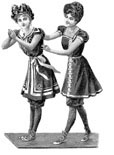
A Tale of Two Classics
GUEST COLUMN
During the 20th century two of the world’s largest multinationals dominated their competition. Their “classics” brought each organization universal recognition, even into the most remote recesses of the earth. Each maintained tight centralized control with careful oversight to insure they had the same high quality of product worldwide.
At the close of the second millennium, new managers took control of both multinationals. Grating against tradition, the new managers wanted reflections of their personal tastes. They also demanded a modern taste for the new generation. Both giants introduced their new formulas with great fanfare. The news media had a heyday denouncing the old and cheering the new.
Despite massive publicity campaigns the changes were universal flops. Loyalty to the giants dropped in country after country. Income declined and facilities were closed. Public confidence in both managements eroded.
With sales spiraling down, only one of the giants reacted intelligently. The directors swallowed the bitter pill of pride and management was reshuffled. Their old formula was reintroduced as “Coke Classic.” The management of Coca-Cola learned a hard lesson, and today Coca-Cola again dominates the world market.
You May Also Enjoy
We ought to be thankful to Pope John Paul II, who set the stage for this momentous improvement of the Mass in the vernacular.
A Vatican official makes a prediction: "In the end, the people will assist at the Tridentine Mass and our churches will empty."
When Cardinal Ratzinger became Pope Benedict XVI, we let out a cry of “Three Cheers…

